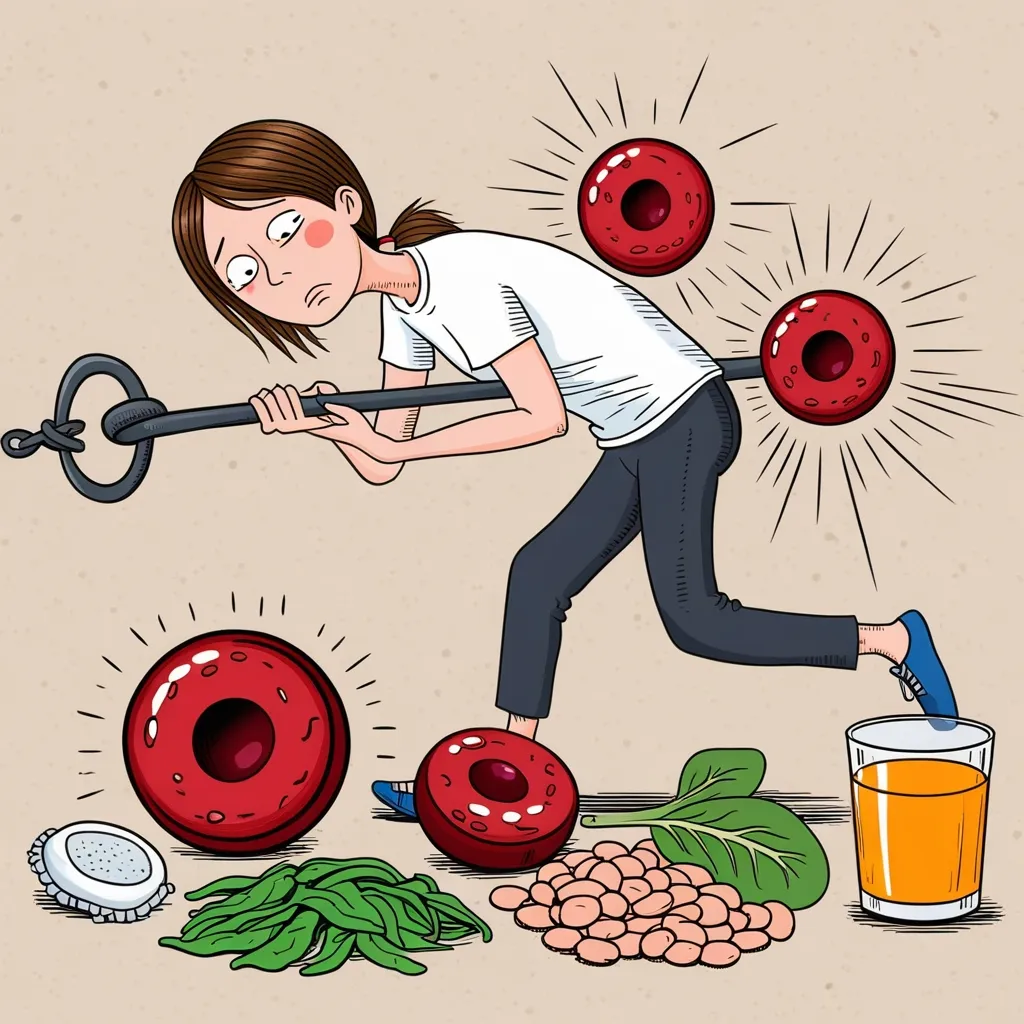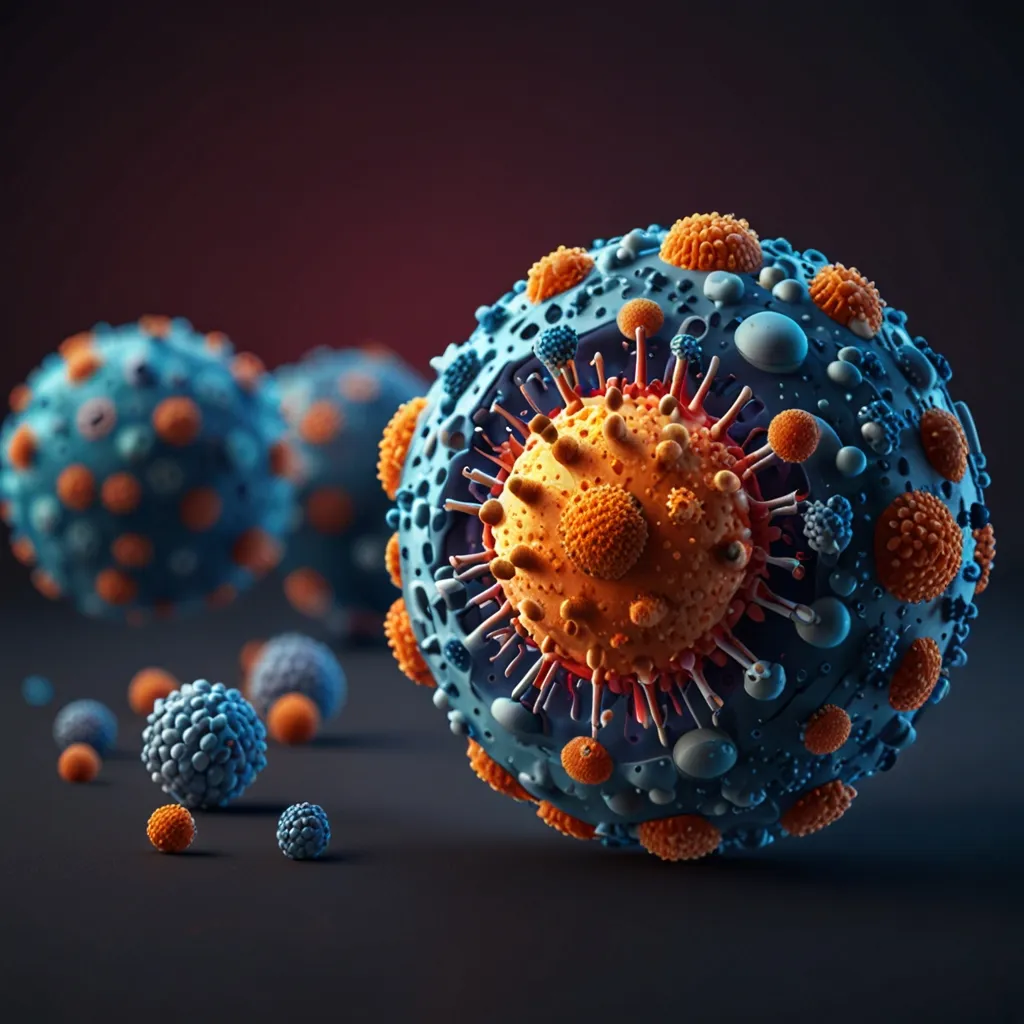Iron deficiency anemia is one of those sneaky conditions that can mess up your day-to-day life without you even realizing it. It’s when your body just doesn’t have enough iron to make hemoglobin, the stuff in your red blood cells that carries oxygen around. Without enough hemoglobin, you’re going to start feeling pretty lousy.
Iron deficiency anemia can sneak up on you for all sorts of reasons. Maybe you’re not eating enough iron-rich foods, or possibly your body isn’t absorbing it right. For some folks, it’s because of losing too much blood. Women who get periods, pregnant or breastfeeding moms, and people with certain health issues are often the prime suspects for this condition.
When you’re low on iron, your body gives you all sorts of red flags. You could feel wiped out and weak, like you’re dragging an anchor behind you. Your skin might go super pale, your hands and feet feel like ice, and even standing up can make you dizzy. Breathing can get more labor-intensive, and sometimes your heartbeat feels like it’s gone rogue. Worst-case scenario, you might even start craving weird stuff like ice (trust me, it’s a thing).
To figure out if iron deficiency anemia is what’s dragging you down, doctors will do some blood tests. They’ll check out your hemoglobin levels and how much iron you’ve got kicking around in your blood. Sometimes they’ll dig deeper to spot what’s causing it, like bleeding in your gut or issues with absorbing food.
Treating this thing usually starts with iron supplements. You pop these pills, either by mouth or, if you’re really low, through an IV. The pills usually come as ferrous sulfate and work best on an empty stomach, but if they mess with your tummy, eating something with them is okay. Just skip taking them with antacids since they mess up iron absorption. Vitamin C helps though, so chugging some orange juice is a good call.
Taking iron supplements isn’t always a walk in the park. They can make you constipated or nauseous, and sometimes your poop might turn a darker shade. Docs often suggest a stool softener to deal with constipation. Stick to the dosage they recommend and keep taking the pills for a few months, even if you’re feeling better, to really top up those iron stores.
Besides pumping your body full of iron, fixing whatever caused the anemia in the first place is crucial. If heavy periods are the culprit, medications like the pill might be prescribed to lighten the flow. If it’s something like bleeding in your guts, you may need more tests and even surgery.
Eating the right stuff can also guard against iron deficiency anemia. Load up on foods rich in iron like red meat, poultry, fish, beans, lentils, and those fortified cereals. Vegans and vegetarians have to be a bit more on their game, making sure they eat plenty of iron-rich foods and maybe boost it with vitamin C. Cutting back on caffeine and avoiding crappy diets also helps keep iron levels in check.
Ignorance is not bliss when it comes to iron deficiency anemia—it can cause bigger health issues if you let it slide. It can mess with your heart, making it beat too fast or irregularly, and might even lead to heart failure. For pregnant women, severe anemia can mean early births and tiny babies. Kids with iron deficiency might not grow right and could get sick more often.
Preventing iron deficiency anemia is all about balance—a good diet and regular health check-ups. Pregnant women especially need to get screened for this as part of their prenatal care. Men and postmenopausal women with anemia should get checked for any sinister gut issues.
In a nutshell, iron deficiency anemia is treatable but needs quick action. Knowing the symptoms, causes, and how to treat it helps you stay on top of it. Eat well, see your doctor regularly, and follow through with treatments to keep your iron levels and overall health in a good place. If there’s any hint you or someone you care about might have iron deficiency anemia, consulting a healthcare provider is essential for the right diagnosis and treatment plan.






